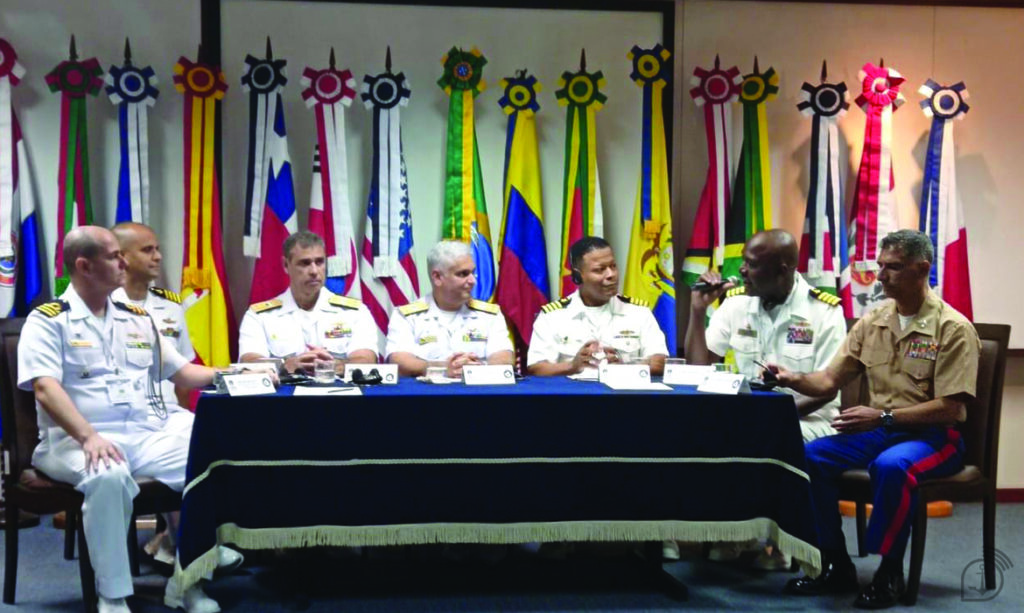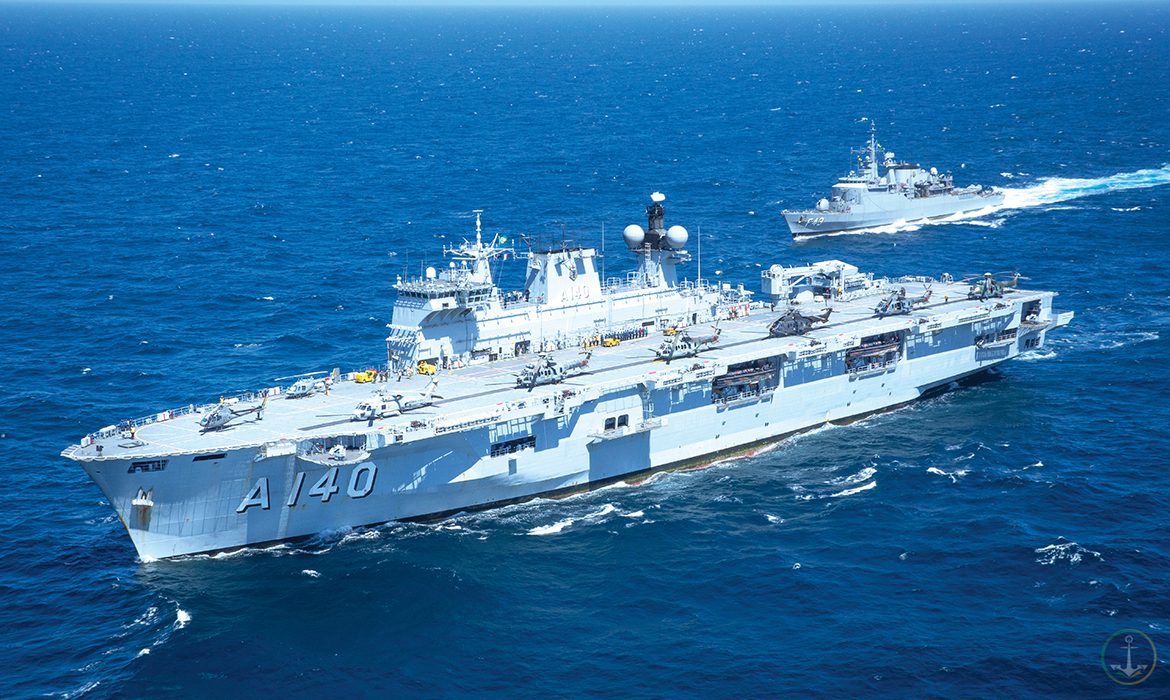Exercise takes place until September 21st
By Captain Lieutenant (RM2-T) Luciano Franklin de Carvalho and Second Lieutenant (RM2-T) Thaís Cerqueira Francisco – Rio de Janeiro, RJ
With 5,500 military personnel, 21 aircraft and 21 ships, including a submarine, Operation UNITAS LXIII begins next September 10, in Brazil. The opening event was held this Thursday (08), in the city of Niterói (RJ), at the headquarters of the Brazilian Fleet, followed by a press conference.
Since 1960, UNITAS is the oldest multinational maritime exercise organized by the Americans and, in this edition, Brazil is the coordinator and host country. The main objectives of the operation are to increase the interoperability of the Navies by conducting naval, naval aviation and Marine operations, and to strengthen the ties of cooperation among the participating countries.

63rd UNITAS Operation
Commanded by Rear Admiral Marcelo Menezes Cardoso, Commander of the 1st Fleet Division, the Brazilian Task Group (GT) is composed of the following vessels: Multipurpose Aircraft Ship “Atlântico”; Multipurpose Dock Ship “Bahia”; Combat Car Landing Ship “Almirante Sabóia”; Frigate “Constituição”; Frigate “Liberal”; Frigate “União”; General Cargo Disembarkation Vessel “Camboriú”; Ocean Patrol Vessel “Amazonas”; Patrol Vessel “Macaé”; Ocean Support Vessel “Purus”; and Carrier Vessels “Aratu” and “Araçatuba”.
The GT will also have a detachment of Combat Divers, a troop of 500 Marines, Amphibious Caterpillar Cars (CLAnf) and the support of the following aircraft of the Brazilian Navy Super Cougar (UH-15); Seahawk (SH-16); Super Linx (AH-11 A/B); Squirrel (UH-12); Skyhawk (AF-1); as well as the “Orion” (P-3AM) and “Bandeirante Patrol” (P-95) aircraft from the Brazilian Air Force.
This year, the Operation will have the participation of seventeen foreign navies: Cameroon, Chile, Colombia, South Korea, Ecuador, Spain, United States, France, Jamaica, Mexico, Namibia, Panama, Paraguay, Peru, United Kingdom, Dominican Republic, and Uruguay.
“In this edition, there will be a specific task-unit focused on maritime security. These exercises will be conducted by the Patrol Vessels of the Cameroonian and Namibian Navies, as well as by British and Brazilian Patrol Vessels,” said Admiral Cardoso.
Operation UNITAS 2022 will consist of a port and a sea phase. The sea phase, in turn, will have three stages. The first will be a preparation phase where there will be exercises of surface, anti-submarine and anti-aircraft actions, electronic warfare, and maritime interdiction operations; the second will be exercises specifically related to maritime security; and the final phase will be an amphibious phase, which will include a simulation of civilian rescue, through an amphibious incursion on Itaóca Beach (ES), involving the movement of a multinational amphibious element and the use of amphibious assault vehicles and landing craft.
“Since 2008, UNITAS has been conducted with an amphibious phase. This inclusion shows the importance that the Brazilian Navy attaches to preparing the Forces to carry out humanitarian aid and disaster remediation operations. One of the important contributions of this type of training is the learning that we had in the humanitarian aid to Haiti”, explained Admiral Cardoso.
In the port phase, workshops will be held for the Marines and Special Operations troops, in addition to activities that will allow cultural exchanges, sporting events, and relationship projects with the civilian public. For the Secretary of the United States Navy, Carlos Del Toro, the two weeks of intense exercises include complex operations on the high seas, testing the capacity for joint international action, which requires coordination in all areas.
“Success in this type of mission requires constant communication, multilateral cooperation and, most importantly, trust. Confidence in the capability and decisions of our Navies and our Nations,” commented the Secretary.
*** Translated by the DEFCONPress FYI Team ***
